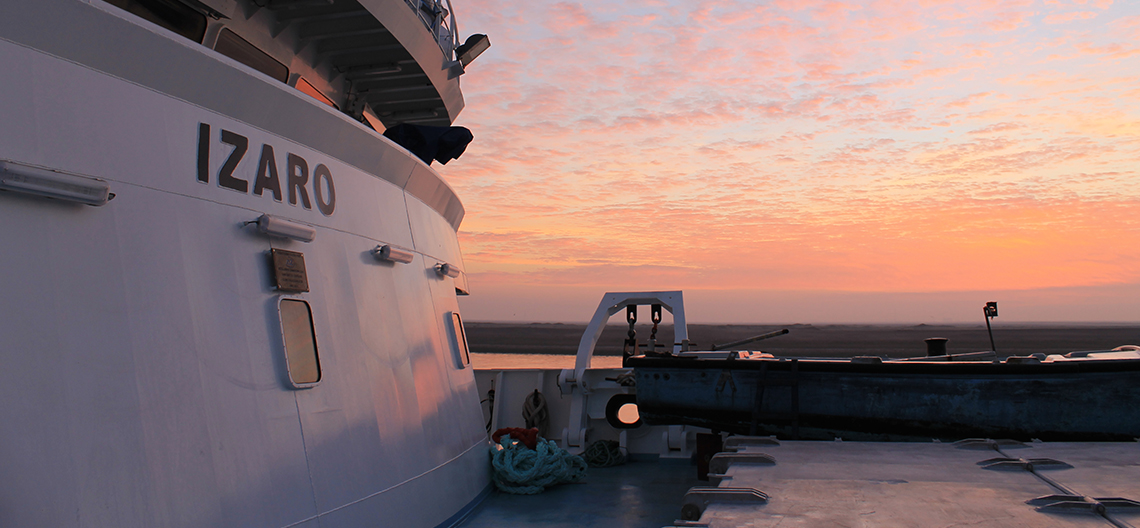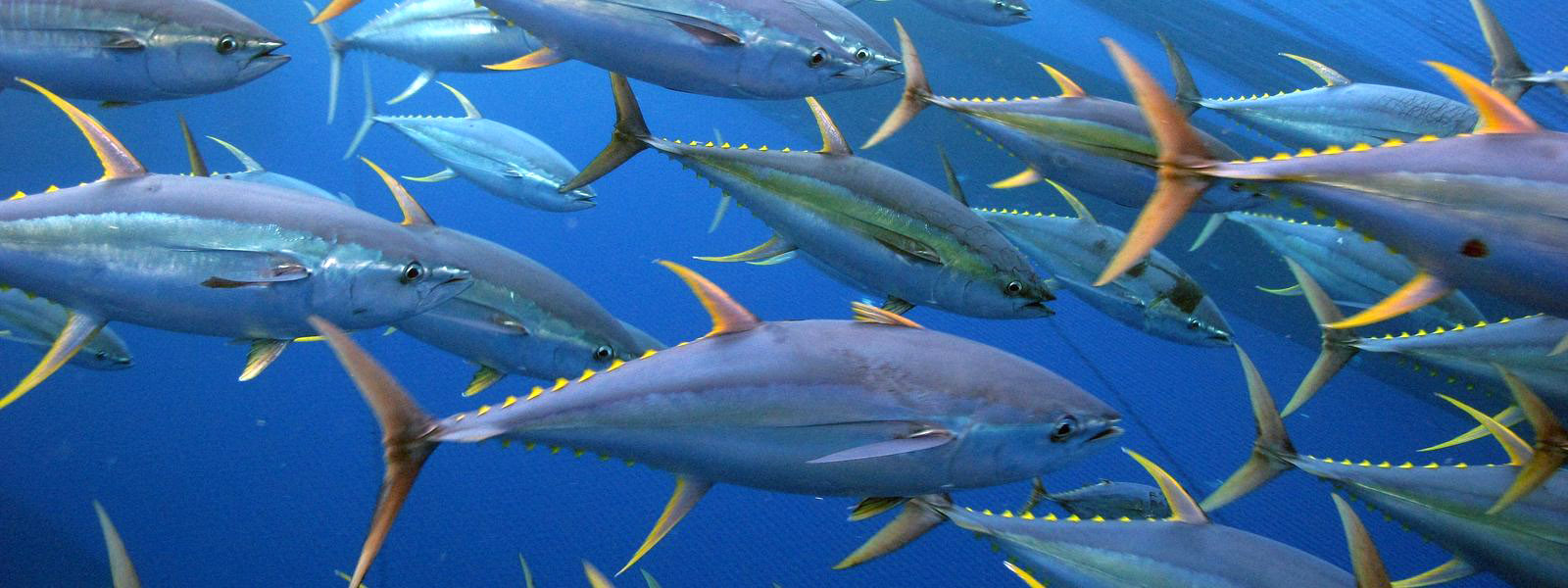
Since our formation in 1967, we have promoted sustainable fishing for tuna species with our responsible harvest of the fish stocks and a strong commitment to safeguarding the ecosystem of the Indian Ocean where our vessels operate.
We operate in the Indian Ocean, complying with the guidelines set forth by the IOTC (Indian Ocean Tuna Commission), fully supervised by independent onboard observers who audit the work of our fishermen.
As part of our Corporate commitment to responsible fishing, between 2003 and 2015 we reduced our fishing capacity by 25%. In addition, we unilaterally reduced the number of FADs our vessels use to below the level permitted by the IOTC while we have pioneered efforts to introduce bio-degradable FADs into the fishery. Furthermore, we have invested an innovative catch management system, with the introduction of a second conveyor belt to return by-catch species, including sharks, live to the sea.
Our commitment to sustainable and responsible fishing remain steadfast. The certification of our fishery against the Marine Stewardship Council (MSC) standard for sustainable fisheries was recognition of the success we have achieved.
We will keep improving.
In summer, 2019, we have published our new Fisheries Strategy. This will commit to maintaining the progress we have made. It will define important policy initiatives covering the number of FADs our vessels will deploy, the introduction of bio-degradable FADs, our approach to reducing the risk of our fishery negatively impacting Endangered, Threatened and Protected (ETP) species and a FAD management plan that responds to stakeholder concerns on a range of issues from the monitoring of active FADs to the recovery of lost FADs that have become derelict in vulnerable marine ecosystems. .
We will not work alone in defining and implementing our Strategy. We will work closely with such as AZTI, MSC, EII, ISSF and a variety of stakeholders to guarantee good practices aimed at the sustainable use of our renewable natural resources.
Our vessel skippers, crew, operators and management all attend regular training courses to strengthen understanding of their role in ensuring sustainable fishing operations and practices,
Furthermore, we will work closely with the Government of the Republic of Seychelles and the Governments of other coastal and small island developing states to promote our vision of sustainable industrial fishery for tuna in the Indian Ocean.
ECHEBASTAR BUSINESS ETHICS – PDF

OUR COMPANY IS ECOSYSTEM FRIENDLY AND FULLY RECOGNISES ITS RESPONSIBILTIES TO THE RESOURCE AND CIVIL SOCIETY IN PROVIDING PREMIUM QUALITY TUNA WITH FULSOME FLAVOUR EXCELLENT TEXTURE AND PROVEN HEALTH BENEFITS FOR THE ENJOYMENT OF DISCERNING CONSUMERS WORLDWIDE.


The International Seafood Sustainability Foundation (ISSF) is a non-profit organization that works in the sustainability of tuna stocks around the world.
They achieve this by developing and implementing science-based conservation measures. These measures are designed to reduce bycatch, protect endangered species, and ensure that tuna fishing is conducted in a responsible manner. The ISSF’s conservation measures are voluntary, but they are widely adopted by the seafood industry. In Echebastar fleet, the conservation measures below are adopted and implemented:
ISSF CM 3.1_Shark Finning Policy_Echebastar.pdf
ISSF CM 3.1_Shark Finning Policy_Hartswater.pdf
ISSF CM 3.3_Full retention of Tunas Policy_Echebastar.pdf
ISSF CM 3.3_Full retention of Tunas Policy_Hartswater.pdf
ISSF CM 3.5_Use Only Non-entagling FADs_Echebastar.pdf
ISSF CM 3.5_Use Only Non-entagling FADs_Hartswater.pdf
ISSF CM 3.7_FAD Management Policy_Echebastar.pdf
ISSF CM 3.7_FAD Management Policy_Hartswater.pdf
Relevant facts
2006
2008
2009
2012
2013
The start of the implementation of BY-CATCH in the sales contracts, turning by-catch into target fishing.
First company in the global tuna fishing industry to be included in the PVR (Proactive Vessels Register) of ISSF.
Pilot Project ‘Selective Purse Seiner Prototype’.
Since January 2013, the implementation in all our vessels of objects with non-meshing materials, with a high proportion of biodegradability.
Accomplishment of ISSF requirements, in terms of observers on board.
The beginning of the implementation in our fleet of new generation vessels with:
- Less fishing effort
- Less powerful engines(less consumption and a minor carbon footfrint)
- 30% of capacity aimed at deep-frozen fish with high added value
- Conveyor belts to return by-catch alive to the sea.
2014
2018
Echebastar is the first tropical tuna fishery in the world which catches skipjack tuna using all methods of seine fishing ever to be certified by the Marine Stewardship Council, the most rigorous independent organization setting standards for well-managed and sustainable fishing.
Certification to the MSC Fisheries Standard for sustainable skipjack seine fishing in the Indian Ocean.
We are the first tuna fishery in the world using this fishing method in all its forms ever to be granted certification to the Standard for Sustainable Fishing issued by MSC, which is the most rigorous independent organization setting standards for well-managed and sustainable fishing.
2019
2020
2023
Implementation of the coral project to research and document the potential extent of interactions between FADs and coral communities.
End of Echebastar’s first MSC certification cycle having met all initial conditions (2018). And start of the recertification process for the second cycle (2024/2028).
Signing of the FADWATCH agreement between the Seychelles government (SFA) and all members of the industrial fleet (SIOTI/AGAC).



